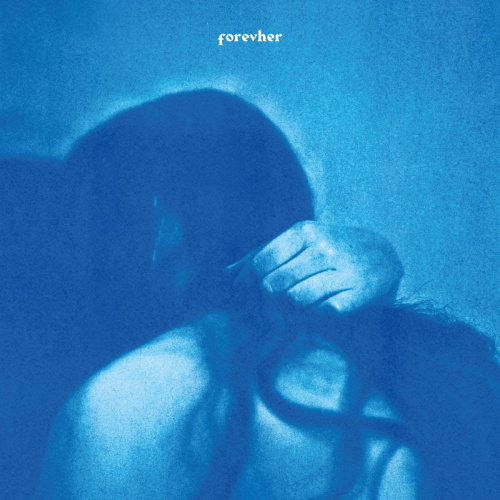Biography
It’s the blue that hits you first. A deep, dark but ambiguous light, bathing the passionate embrace between two lovers in familiarity and newness. You wouldn’t immediately know that you’re looking at two women, or that the piece was conceived as a rework of Rodin’s The Kiss. But you’ll have certainly felt something like that blue, and on second album ‘forevher’ – a title entwining ‘for her’, ‘forever’ and ‘forever her’ – Shura colours those classic images of love and self in bold new shades.
Where Rodin’s statue captures archetypal romantic love, ‘forevher’ sets out to challenge those supposed norms. ...
It’s the blue that hits you first. A deep, dark but ambiguous light, bathing the passionate embrace between two lovers in familiarity and newness. You wouldn’t immediately know that you’re looking at two women, or that the piece was conceived as a rework of Rodin’s The Kiss. But you’ll have certainly felt something like that blue, and on second album ‘forevher’ – a title entwining ‘for her’, ‘forever’ and ‘forever her’ – Shura colours those classic images of love and self in bold new shades.
Where Rodin’s statue captures archetypal romantic love, ‘forevher’ sets out to challenge those supposed norms. The artwork, says Shura, asks audiences to relate to queer love the same way that queer people have had to insert their narratives into heterosexual love songs for decades. If you’d claimed just a few years ago that Shura would make an album exploring “all that love is”, few would have been as surprised as Aleksandra Denton herself. Ever since the viral ‘Touch’ – and its stunning video in which Shura, crucially, ended up alone – an impassioned global fanbase have awaited another record of heartbreak anthems. And when Shura started work on ‘forevher’, she did so at her most tired and homesick, setting up shop in Minneapolis at the close of a two-year tour cycle for ‘Nothing’s Real’. Here, “religion (u can lay your hands on me)” – along with the seeds of the Minneapolis sound – eventually became a lynchpin for the rest of the album. Just as importantly, it was in Minneapolis that Shura began talking to her current girlfriend online, and though they wouldn’t meet in person for another few months, the blue had begun to seep in.
‘forevher,’ then, is a record born from a budding romance, covering everything from the initial pull of desire, to the giddy joy of finally being together, to recognising the moment when the connection develops from lust into something scarily meaningful. Here is a classic London-to-NYC love story, but one told through the filter of dating apps and Skype chats. And whilst how to live – and love – as a queer woman has always been integral to Shura, it’s remarkable to hear these stories twisted through such a gorgeous amalgam of influences: Joni Mitchell and Minnie Riperton, Bon Iver and Frank Ocean, Prince and Ariel Pink. Through these inspirations, Shura’s own modern, outlier perspective found a newer, more daring approach to sound and song.
Overall, ‘forevher’ feels the same as its creator: a little sharper, a little wiser. The luxurious groove of “side effects” shakes off the shackles of past love, chiefly saying goodbye “to that more anxious iteration of me. I don’t miss her.” “religion (u can lay your hands on me),” meanwhile, is an unabashedly queer sex-jam – free of guilt, long-term future, and faith itself. “I’ve always been fascinated with women being fucked by Christianity,” says Shura. “The example of the perfect woman in the bible is a virgin mother, which is impossible…so from day dot, we’re screwed”. As the album progresses, so too does the relationship deepen, with the risks and rewards getting greater and greater. Ethereal piano ballad “tommy” considers the subjective nature of “forever” within the context of love: its emotional intensity is given added weight by the included recording of a 90-year-old man Shura met in Texas, describing a dream he had about his late wife that helped him embrace the idea of moving forward with a new partner.
‘forevher’ is an album that feels the fear and does it anyway: “princess leia” considers the fact real love means having so much more to lose. Elsewhere, “BKLYNLDN” looks at romantic longing through the lens of texts, anxiety-inducing silences, and what presence and absence really means in today’s relationships. The record closes on the epic “skyline,” which builds to an explosive crescendo before levelling out to peace in a way that evokes some of the lusher, linear moments on Frank Ocean’s ‘Blonde’. For Shura, this soundtracks not only her final relocation to New York but also a much deeper journey as an artist and young woman.
Assembling a close-knit circle of old (and new) friends, the album was again co-produced alongside Joel Pott (George Ezra, Mabel, London Grammar) with additional musical turns from Jona Ma (from Jagwar Ma) and Whitney’s Will Miller. On BVs, too, are the all-female chorus of Rosie Lowe, Kerry Leatham and Reva (one half of NIMMO), whilst T-E-E-D – whose ‘Leave a Light On’ affected Shura so much she DM’d him asking if he ever wanted to collaborate – worked on “the stage” and “tommy,” “the stage” itself formed the backdrop of Shura and her girlfriend’s first date, a do-or-die moment that saw Shura fly out to New York and seek welcome distraction at a gig (“we don’t wanna dance / we just wanna…”).
“For me,” says Shura, “the blue of ‘forevher’ is a passionate colour. It’s not cold at all, or the blue of depression.” Neither is this the heartbroken blue of Joni Mitchell, or Yves Klein’s blue of idealised femininity: it is closer, maybe, to Kandinsky’s link between blue and the spiritual. “That’s what I love about this colour,” Shura concludes. “Its meaning is actually quite promiscuous. Making this record I’ve come to notice it everywhere: in text messages, Facebook, on the street. Everywhere I look, I notice blue. Which is exactly what it’s like being in love.” And it’s the multiplicity of love that drew Shura to make an album that dissolves boundaries of gender or sexuality in acknowledging that feeling – the one we all know, when we feel it. Listen to ‘forevher’, and you will feel it too.




